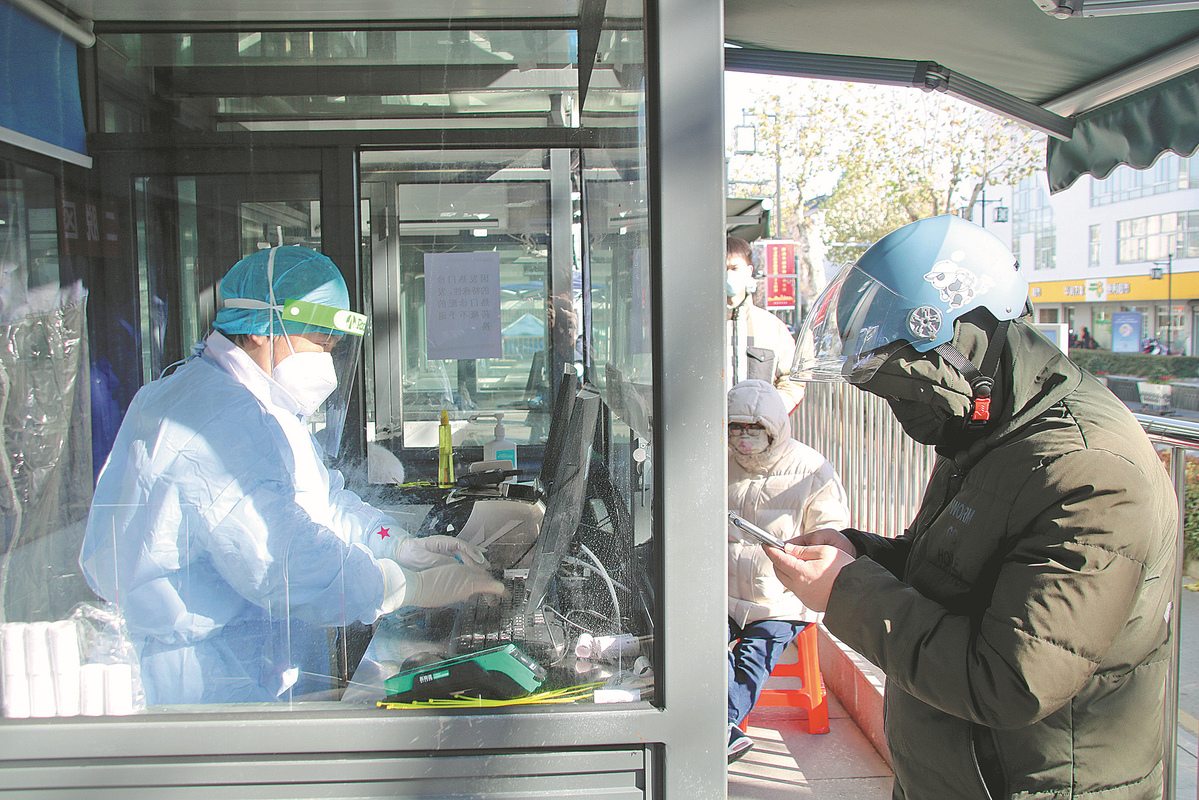Valiant medics rise to new challenges






Early every morning, Zhang Jing, dean of the department of infectious diseases at Weihai Municipal Hospital in Shandong, repeatedly reminds her colleagues that to avoid becoming infected, they should wear their protective suits properly.
"Two-thirds of people who come to the fever clinics are COVID-19 patients," said Zhang, who begins her daily work at 7:30 am and finishes her duties nearly 12 hours later.
She has become used to the heavy workload. When she worked in a fangcang, or makeshift hospital, for the past two weeks, Zhang only got one or two hours' rest each day.
The rising number of patients at fever clinics has created great pressure for the medical staff members, as well as the medical resources at the Weihai hospital. Doctors and nurses from other departments are being deployed to the fever clinics.
Zhang said, "We suggest that patients with mild symptoms stay at home to recover, which will not only be good for themselves, but will save more rooms for seniors, expectant mothers and patients with obesity."
Pediatrician Peng Anmin, 50, said this winter is the most stressful she has experienced since she started work 28 years ago.
"Our pediatricians are basically working around the clock. We expected patient numbers to surge, but did not expect this to happen so soon," said Peng, chief pediatrician in the infectious diseases department on the Tiyu Xincheng campus of Dalian Municipal Women and Children's Medical Center, Liaoning province.
"We work eight to 10 hours a day, seven days a week. Each day, more than 300 children with fever come to see the doctors," Peng said.
According to Peng, infants seldom have a fever in the first six months of life. But now, medical workers are treating more than 10 infants with fever each day who are younger than two months.
As the condition of newborns can alter rapidly, they need to stay in hospital so that any change in their condition can be discovered quickly and potential risks prevented.
There are nine pediatricians in Peng's department. Except for herself, the other eight have tested positive for COVID-19.
Pediatricians from other departments at the medical center have been assigned to provide support. "We can have backup when we're short of personnel, but drugs are the biggest challenge now," Peng said.
For example, the drug Ibuprofen, which is packed in fours, is now being sold one bottle at a time. Paracetamol is also in high demand, Peng said.




















